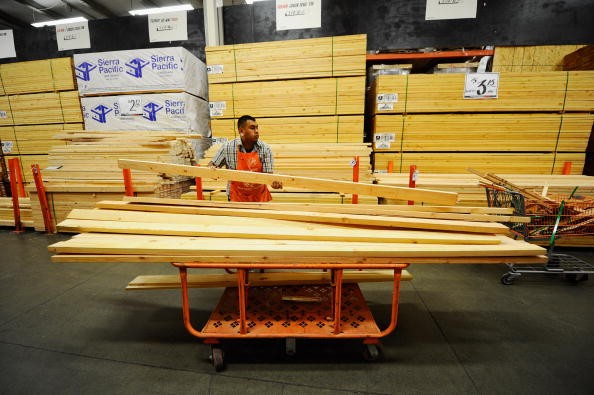Jimmy Lee, a Chinese, is buying lumber mills in Western North Carolina to provide China with hardwood to satisfy consumers' taste for quality products brought about by recently acquired wealth.
Lee owns 11 mills in the United States that include the Stanley Furniture plant, which once had the distinction of being the largest employer in Graham County. He also has facilities in North and South Carolina, Tennessee and Virginia, where he processes lumber for the Chinese market.
The Chinese market helps provide jobs for timber workers, such as mill workers, loggers or exporters.
Furthermore, the Chinese market boosts the value of timber, which consequently encourages landowners to grow and manage timberlands rather than converting them for planting more traditional crops.
North Carolina's timber exports to China, as well as those of other U.S. states, have drastically increased in recent years. More timber is being harvested in the U. S. to be shipped to China, where it is made into furniture, flooring and other high-value products.
According to John Hammond of the North Carolina Department of Agriculture, about 40 percent of timber from North Carolina is now destined for China.
In the last five years, the average value of Tar Heel wood and wood products sent to China is $165--almost 30 times than the prices in 2000.
Lee began his education and career in the timber business in China before moving to the United States in late 2003. At that time, lumber shipped to China often came back to the United States as furniture or other finished wood items. However, China's emerging economy has reversed the situation.
It was ten years ago when China began consuming more lumber to manufacture flooring, furniture and other wooden products.
In 2014, it was reported that there was a growing demand for rosewood furniture in China over the previous decade.
Lee noted that just five years ago, China makes furniture with yellow poplar, a very low-end chipper wood, and ships it back to the U.S. But when it comes to expensive wood, like Walnut and Red Oak, most of it stay in China.
In that same decade, North Carolina's furniture declined due to competition from lower-priced imported goods with the 600,000-square-foot Stanley Furniture plant being among the casualties.
Lee bought Stanley Furniture plant in 2014, and last year had $8.3 million in sales from that facility. This year, he hopes the former Stanley Furniture plant, now renamed Oak Valley Hardwoods, hits $12 million in sales.



























